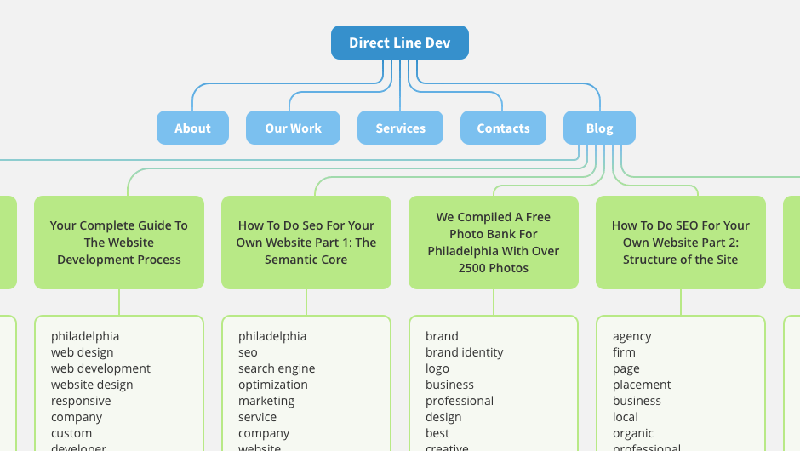Table of ContentsGet This Report on What Is Seo? Search Engine Optimization 2020 - MozWhat Is Seo? Search Engine Optimization In Plain English for DummiesThe 7-Minute Rule for What Is Seo? Here's Search Engine Optimization Defined By 60What Does What Is Seo? • Seo For Beginners • Yoast Do?
Promoting a website to increase the number of backlinks, or inbound links, is another SEO technique - how to increase seo. By May 2015, mobile search had actually gone beyond desktop search. As an Web marketing technique, SEO thinks about how search engines work, the computer-programmed algorithms that determine online search engine habits, what individuals search for, the real search terms or keywords typed into search engines, and which online search engine are preferred by their targeted audience.
These visitors can then potentially be transformed into consumers. SEO varies from local search engine optimization in that the latter is focused on enhancing an organisation' online existence so that its websites will be shown by search engines when a user enters a regional search for its product and services.
Webmasters and content service providers began enhancing sites for online search engine in the mid-1990s, as the first search engines were cataloging the early Web. At first, all webmasters just needed to submit the address of a page, or URL, to the various engines which would send a web spider to crawl that page, extract links to other pages from it, and return details discovered on the page to be indexed.
A 2nd program, called an indexer, extracts information about the page, such as the words it includes, where they lie, and any weight for specific words, as well as all links the page contains. All of this info is then positioned into a scheduler for crawling at a later date.
According to market analyst Danny Sullivan, the phrase "seo" probably entered into use in 1997. Sullivan credits Bruce Clay as one of the very first people to popularize the term. On May 2, 2007, Jason Gambert tried to trademark the term SEO by encouraging the Hallmark Workplace in Arizona that SEO is a "process" involving manipulation of keywords and not a "marketing service." Early versions of search algorithms depended on webmaster-provided info such as the keyword meta tag or index files in engines like ALIWEB.
The Do You Need An Seo? - Search Console Help - Google Support Diaries
Utilizing metadata to index pages was found to be less than reputable, nevertheless, due to the fact that the web designer's choice of keywords in the meta tag could possibly be an inaccurate representation of the site's actual content. Incorrect, incomplete, and inconsistent information in meta tags could and did cause pages to rank for irrelevant searches. [] Web content companies also controlled some attributes within the HTML source of a page in an effort to rank well in search engines.
Early search engines, such as Altavista and Infoseek, changed their algorithms to prevent webmasters from controling rankings. By heavily counting on elements such as keyword density, which were specifically within a webmaster's control, early search engines experienced abuse and ranking adjustment. To provide much better outcomes to their users, search engines needed to adapt to ensure their results pages revealed the most appropriate search engine result, rather than unrelated pages packed with numerous keywords by unscrupulous web designers.
Considering that the success and popularity of a search engine is figured out by its ability to produce the most relevant outcomes to any given search, poor quality or unimportant search results page might lead users to find other search sources. Search engines responded by establishing more intricate ranking algorithms, taking into consideration extra factors that were more challenging for webmasters to manipulate.
Companies that utilize extremely aggressive strategies can get their client websites prohibited from the search results page. In 2005, the reported on a business, Traffic Power, which apparently used high-risk techniques and failed to reveal those dangers to its customers. publication reported that the exact same company sued blog writer and SEO Aaron Wall for writing about the restriction.
Some search engines have also reached out to the SEO market, and are regular sponsors and guests at SEO conferences, webchats, and seminars. Significant search engines provide information and standards to assist with website optimization. Google has a Sitemaps program to assist web designers discover if Google is having any issues indexing their website and likewise provides data on Google traffic to the site.
Some Of Seo Basics: A Beginner's Guide To Seo - Wordstream
In 2015, it was reported that Google was developing and promoting mobile search as an essential feature within future products. In response, numerous brands began to take a different technique to their Online marketing methods. In 1998, two graduate students at Stanford University, Larry Page and Sergey Brin, established "Backrub", an online search engine that relied on a mathematical algorithm to rate the prominence of websites.
PageRank estimates the possibility that a provided page will be reached by a https://www.google.com/maps?cid=2338238235142961680 web user who arbitrarily surfs the web, and follows links from one page to another. In impact, this implies that some links are stronger than others, as a higher PageRank page is more likely to be reached by the random web internet user.
Google brought in a faithful following amongst the growing number of Web users, who liked its basic design. Off-page elements (such as PageRank and link analysis) were thought about along with on-page elements (such as keyword frequency, meta tags, headings, links and site structure) to make it possible for Google to prevent the sort of control seen in search engines that just thought about on-page elements for their rankings.
Many sites focused on exchanging, purchasing, and offering links, frequently on a huge scale. A few of these schemes, or link farms, involved the creation of thousands of sites for the sole function of link spamming. By 2004, search engines had included a wide variety of undisclosed consider their ranking algorithms to minimize the impact of link control.
The leading online search engine, Google, Bing, and Yahoo, do not reveal the algorithms they utilize to rank pages. Some SEO specialists have studied different methods to seo, and have shared their personal viewpoints. Patents related to search engines can supply info to much better comprehend search engines. In 2005, Google began personalizing search results page for each user.
Rumored Buzz on What Is Seo? A Get-started Guide To Search Engine ...
In 2007, Google announced a campaign versus paid links that move PageRank. On June 15, 2009, Google divulged that they had taken measures to reduce the results of PageRank sculpting by usage of the nofollow characteristic on links. Matt Cutts, a popular software engineer at Google, revealed that Google Bot would no longer treat any nofollow links, in the same method, to prevent SEO provider from utilizing nofollow for PageRank sculpting.


In order to prevent the above, SEO engineers established alternative techniques that replace nofollowed tags with obfuscated JavaScript and therefore permit PageRank sculpting. In addition numerous solutions have been recommended that include the usage of iframes, Flash and JavaScript. In December 2009, Google announced it would be using the web search history of all its users in order to populate search results.
Created to permit users to discover news results, online forum posts and other content much quicker after releasing than previously, Google Caffeine was a modification to the method Google upgraded its index in order to make things appear quicker on Google than previously. According to Carrie Grimes, the software application engineer who announced Caffeine for Google, "Caffeine offers half fresher results for web searches than our last index ..." Google Immediate, real-time-search, was introduced in late 2010 in an effort to make search engine result more timely and appropriate.